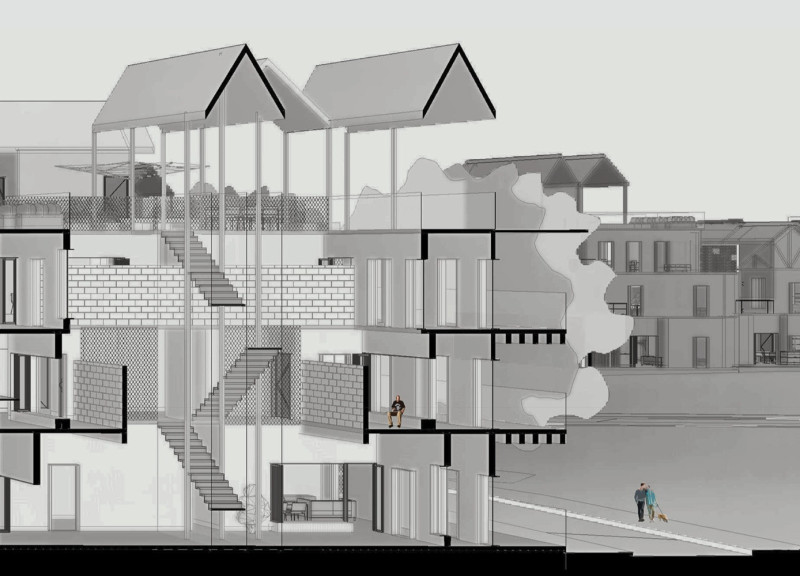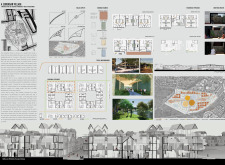5 key facts about this project
Key elements of the project include a central village hub, strategically placed residential blocks, and integrated green spaces. The village center is designed as a communal gathering point, offering essential amenities that facilitate social engagement amongst residents. The residential blocks are organized to optimize natural light and provide privacy, creating a comfortable living environment. Surrounding these elements, green spaces such as parks and communal gardens enhance outdoor recreational opportunities, supporting healthy lifestyles.
The project distinguishes itself through its comprehensive approach to residential design and community planning. By offering a variety of housing types, including courtyard houses and row houses, the project addresses the necessity for modular and flexible living solutions. These housing typologies allow for efficient land use while reinforcing neighborhood cohesion. Additionally, shared facilities—such as child care centers and co-working spaces—are incorporated to enrich local infrastructure, supporting a vibrant and interconnected community.
Moreover, the architectural design prioritizes sustainability, featuring green roofs and permeable surfaces to address environmental concerns. The careful selection of materials, including brick, concrete, timber, glass, and metal, reflects a commitment to durability and aesthetic integrity, ensuring the project contributes positively to the urban fabric of Melbourne.
The integration of cultural inclusivity into the design further enhances the community aspect of the project. Spaces are created to accommodate the diverse practices of the local population, promoting a sense of belonging and shared identity. This consideration of varying cultural needs is a crucial element that sets the project apart from standard housing developments.
For those interested in architectural plans and detailed design insights, further exploration of the project presentation is encouraged. Review elements such as architectural sections and architectural ideas to gain a more complete understanding of how this project addresses contemporary challenges in urban living while creating a functional and sustainable community.























